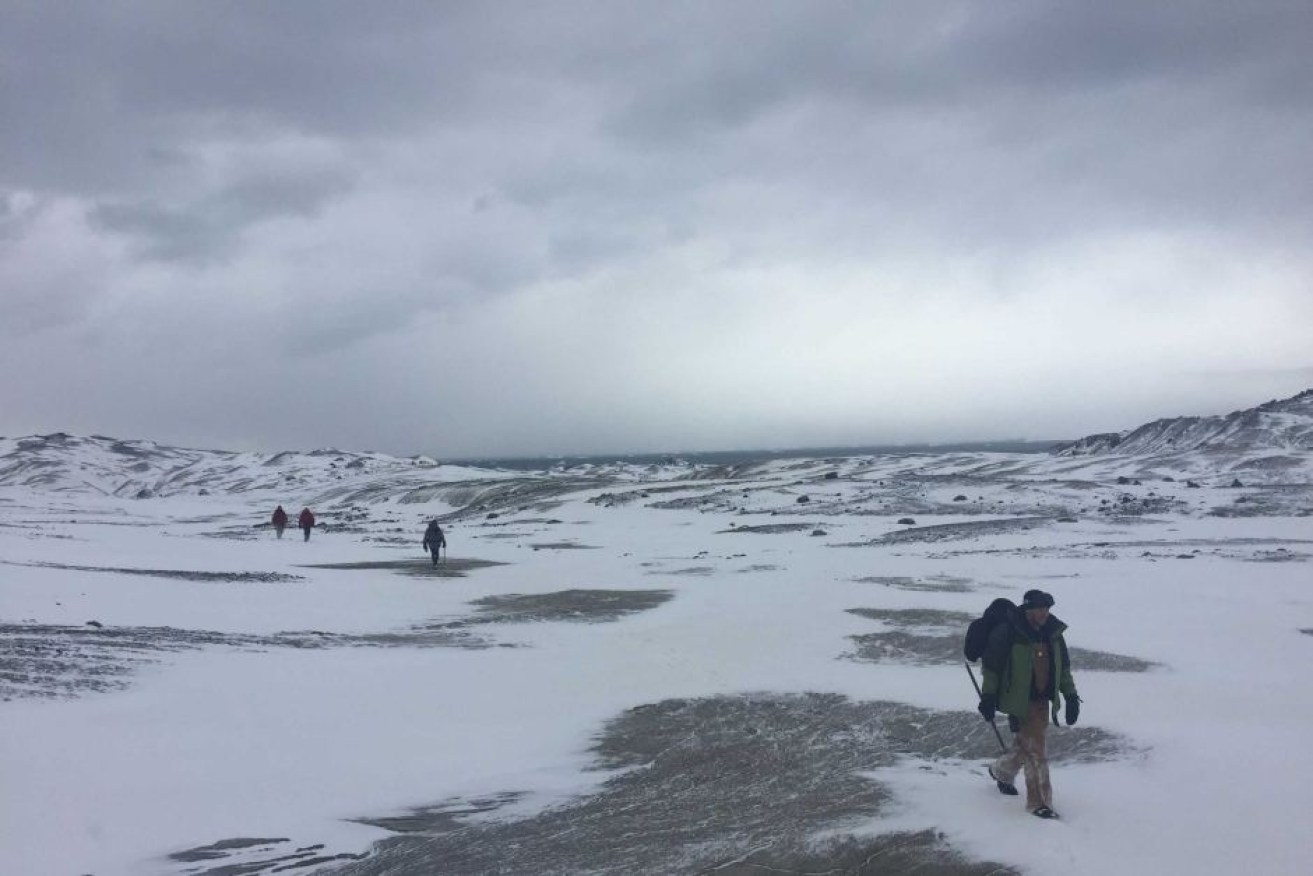Scientists find dinosaur fossils in Antarctica

Flickr: University of Queensland
A team of scientists from around the world have uncovered more than a tonne of fossils and dinosaur remains while on an extremely gruelling and frosty expedition to Antarctica.
Fossils from the end of the age of dinosaurs, some of which were estimated to be 71 million years old, were discovered including many marine reptile remains.
“[We found] things like plesiosaurs and mosasaurs – a type of marine lizard made famous by the recent film Jurassic World,” said Dr Steve Salisbury from the University of Queensland, who took part in the mission.
• ‘Unusual and unique expedition to Antarctica
• Iceberg nearly wipes out penguin population
• Rare minerals hold key to understanding origin of life
• Aussie adventurer attempts new Antarctic record
“We found a lot of really great fossils,” he said.
“They were all shallow marine rocks, so the majority of things we found lived in the ocean.”
Dr Salisbury and the team also found fossils of birds including early ducks that lived at the end of the Cretaceous period.

The researchers scope out a camping spot on Vega Island from their inflatable boat. Photo: Flickr: University of Queensland
The team of 12 scientists from the US, Australia and South Africa travelled to the James Ross Island area to find out more about Antarctica’s dinosaurs.
The researchers ventured to the Antarctica Peninsula, as that is one of the few parts of Antarctica where rocks are exposed during summer. Those rocks are known to come from the age of dinosaurs.
They set up quadrats of 50 by 100 metres and slowly made their way through sections of earth looking at every rock.
Dr Salisbury said if their expedition inspired other people to also get into the hunt for fossils, they would be “very excited”.

One of the tents used by the researchers during their Antarctic stay. Photo: Flickr: University of Queensland
Helicopters and inflatable boats all part of a day’s work
The team not only endured extreme temperatures during their work, but were met with many challenges just getting to the region.
They had to fly to South America, then battle seasickness while sailing to the Antarctic Peninsula, before using helicopters and inflatable boats to get through the mass amounts of sea ice to reach shore.
It takes between four and five days to cross the Drake Passage to get to the tip of the Antarctic Peninsula.
“Crossing the Drake Passage can be kind of rough – some of the biggest seas in the world occur in that area – so most of us just bunkered down for the time we were crossing it,” Dr Salisbury said.

The researchers had to walk for four hours per day from their campsite to the main field site at Sandwich Bluff. Photo: Flickr: University of Queensland
Dr Salisbury had made several attempts to get to Antarctica to conduct the research, but sea ice had previously made reaching land impossible.
“It was so great to finally get there and have a full blown expedition,” he said.
“It’s a very hard place to work, but it’s an even harder place to get to.”
The team camped for almost five weeks between February and March on the heavily glaciated Vega Island, and had to hike 10 kilometres each day through mountainous terrain to reach their main field site, Sandwich Bluff.
“Working in Antarctica is tough,” Dr Salisbury said.
“There were a few days where we did get snowed in, and we’d just be stuck in the communal tent for a while.”
The fossils found are now in Chile and will be shipped to the Carnegie Museum of Natural History where further study will be undertaken.
“A lot of the bigger bones will need quite a bit of preparation before we can do much research on them,” Dr Salisbury said.
“It may be a year or two before we get the results out.”
-ABC








